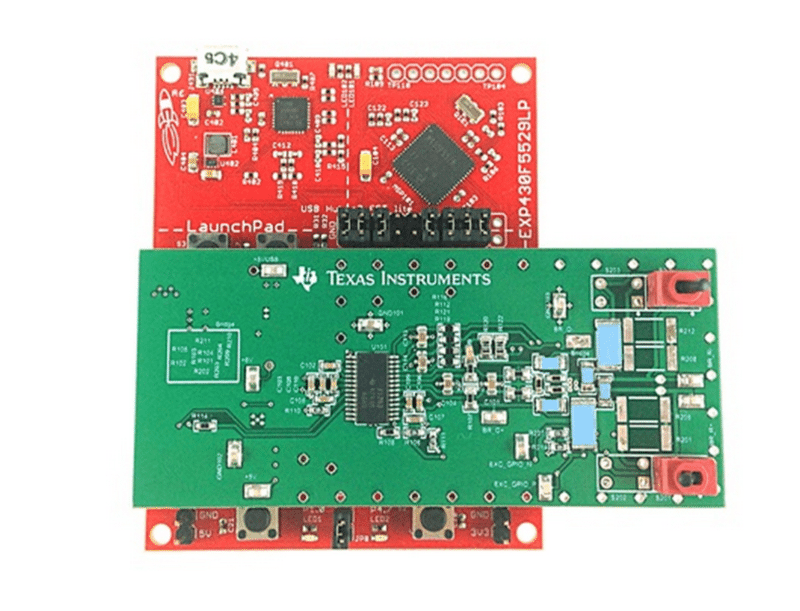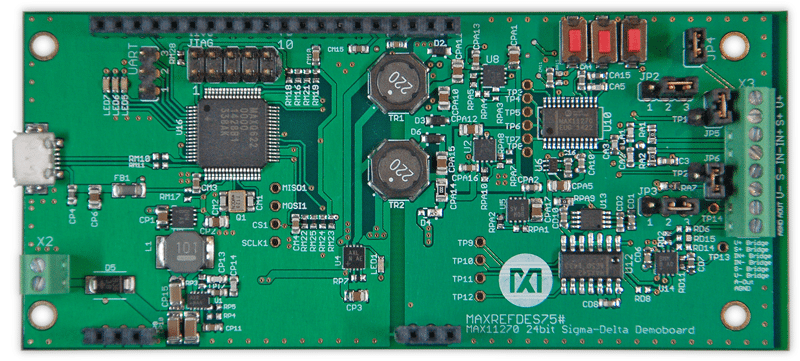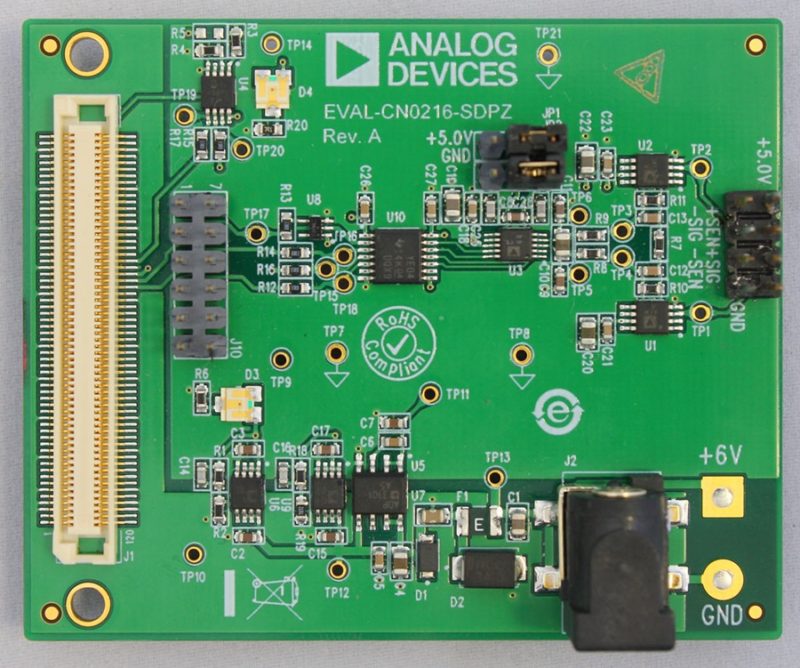Precision Weighing Scale With Less Than 1μV Total Error:

This reference design from TI shows the implementation of a high-resolution advanced digital electronic weighing scale. Designed to work over a large temperature range, the design gives highly precise data and less than 1μV total error. The ADS1262 delta-sigma ADC is ideal for the design and provides greater than 50,000 noise-free counts of resolution. The design centers on a ultra-low-power MCU MSP430. Use of an ac-excited, ratiometrically measured resistor bridge enhances the measurement accuracy by eliminating offset and offset drift errors. The design includes complete circuit, PCB design, ADS1262 example code, test data and simulation results. More on this Reference Design
High-resolution Weighing Scale using Delta-sigma ADC:

This reference design from Maxim Integrated implements a high-performance weighing scale by utilising a high-precision 24-bit analog-to-digital converter for small-signal measurements down to ±25mV. The ADC MAXREFDES75 employed in the design may be configured to operate in a ratiometric mode, or from a precision voltage reference. A calibration GUI shows both automatic and manual calibration tabs when the board is connected to the PC using USB cable. The offset and gain calibration for sensor (load cell) and DAC can be performed using the GUI. More on this Reference Design
Precision Weigh Scale Design for Low speed Measurements:

With the Analog Devices’ reference design described here, designers can implement a high-precision weighing scale which allows precision weigh scale measurement at dc or low frequency. The load cell maintains good performance over the complete output data range, ranging from 9.5Hz to 120Hz, with the help of 24-Bit Sigma-Delta ADC AD7791. The low amplitude signal from the load cell is amplified by two external zero-drift amplifiers which have almost zero offset voltage drift leading to accurate measurements. The high-resolution ADC then converts this amplified signal. A ratiometric connection is used for high-precision measurements. More on this Reference Design
Digital Weigh-Scale Weighs from 10g to 40kg:
This reference design provides a ready-to-use, scalable solution of a digital weighing scale which measures from 10g to 40kg (with 10 g resolution). The design centers on a Z8 Encore MCU which communicates with the 24-bit ADC CS5550 through Serial Peripheral Interface (SPI). A ratiometric connection is provided for measurements. The output voltage of the load cell is filtered to suppress noise and applied to ADC. The weight measured by the ADC is displayed on a LCD. A CALIBRATION switch allows gain and offset calibration of the external ADC. More on this Reference Design









It’s interesting to see that there happens to be a lot of distinct motherboards that affect the scales’ accuracy. I definitely think that accuracy can be extremely important when it comes to scientific pursuits. I can see why a balance would be extremely useful when used in chemistry experiments.